detail profile tetsuya watari
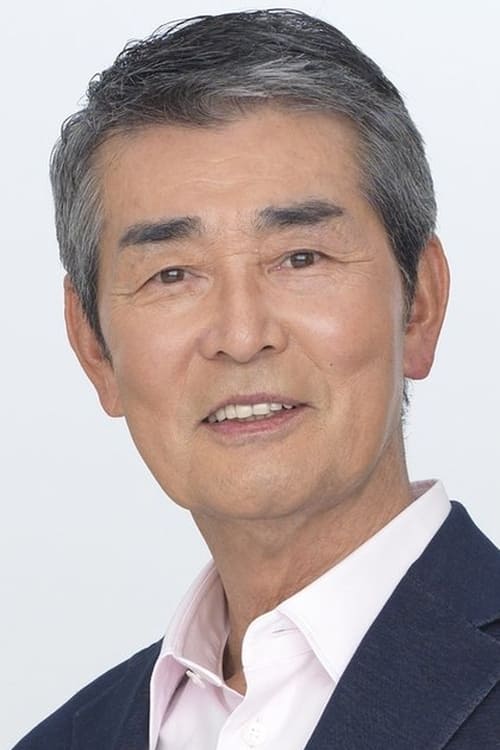
Tetsuya Watari
渡瀬道彦
atau dikenal sebagai
Riwayat Hidup
He graduated from Aoyama Gakuin University.
Watari belonged to the karate club at university.
He made his screen debut in 1964, in Isamu Kosugi's Abare Kishidō, and received one of the Elan d'or Awards.
At Nikkatsu, Watari appeared in such films as Tokyo Drifter and the Outlaw series.
Watari was mentored at Nikkatsu by Yujiro Ishihara.
When Nikkatsu shifted to focusing on Roman Porno films in the early seventies, Watari was one of many actors who left the studio.
Watari was due to play the main role in Kinji Fukasaku’s film Battles Without Honor and Humanity, but because of illness he was not able to appear.
In 1974, he was forced to step down from the lead role of Katsu Kaishū in the Taiga drama Katsu Kaishū on NHK, again because of illness, after appearing in only nine episodes.
In 1976, Watari won best actor of Blue Ribbon Award for his role in Kinji Fukasaku`s film Yakuza Graveyard.
In Japan, Watari is probably still best known for his role as Keisuke Daiomon in the detective series "Seibu Keisatsu" on TV Asahi.
He also appeared in the popular detective drama "Taiyō ni Hoero!" as a replacement for Yujiro Ishihara in 1986.
Watari became the president of Ishihara Promotion after Yujiro's death in 1987 but in 2011 he resigned due to his declining health.
On June 10, 2015 he was hospitalised after suffering a heart attack and underwent surgery.
Seven days later it was announced that he was in rehabilitation and would be discharged from hospital in about a month.
He had a younger brother, Tsunehiko Watase, who was also an actor.
As a singer, Watari is known for his hit song "Kuchinashi no Hana" and he appeared in the Kōhaku Uta Gassen in 1974 and 1993.
He died of pneumonia on August 10, 2020, at the age of 78.
Info Pribadi
Peran Yang Di Mainkan Tetsuya Watari
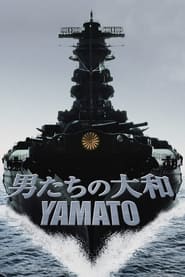 Directed by Junya Sato and based...
Directed by Junya Sato and based...Yamato 2005
Directed by Junya Sato and based on a book by Jun Henmi, "Yamato" has a framing story set in the present day and uses flashbacks to tell the story of the crew of the World War II Japanese battleship Yamato. The film was never released in the United States, where reviewers who have seen it have compared the military epic to "Titanic" and "Saving Private Ryan."
 A Japanese Yakuza gangsters deadly existence...
A Japanese Yakuza gangsters deadly existence...Brother 2000
A Japanese Yakuza gangster's deadly existence in his homeland gets him exiled to Los Angeles, where he is taken in by his little brother and his brother's gang.
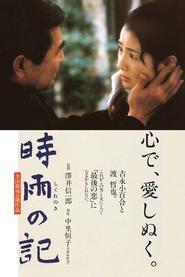 Kounosuke Mibu and Tae Horikawa are...
Kounosuke Mibu and Tae Horikawa are...Diary of Early Winter Shower 1998
Kounosuke Mibu and Tae Horikawa are unable to forget each other, even though they met and fell in love 20 years ago. They had promised each other that they would build a retreat in Shiguretei, but Ushio was hospitalized after a stroke a few days later, and when his wife, Takako, rushed to the hospital, she discovered their love affair, which in reality had not gone beyond kissing. Now, 20 years later, against the advice of her ikebana mentor, Tae rushes to meet Ushio at Shiguretei, only to see him clutching his chest in pain. Eventually, the design and plans for the dream retreat are seen by Tae, but she has to visit Kyoto alone... or maybe she's heading for somewhere else.
 Covering roughly 13 years from Cao Caos...
Covering roughly 13 years from Cao Caos...Sangokushi: The Yangtze Is Burning! 1993
Covering roughly 13 years, from Cao Cao's victory over Lu Bu in 198 CE, through the Battle of Red Cliffs in 208 CE, and the aftermath up until 211 BCE. As other players are swept from the board, the story focuses on Liu Bei and his increasingly desperate attempts to prevent Cao Cao from seizing all of China. The turning point is Liu Bei's recruitment of the best strategic mind of that generation, Zhuge Kongming, the Crouching Dragon.
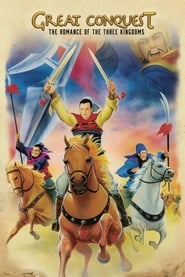 Beginning during the Yellow Turban rebellion...
Beginning during the Yellow Turban rebellion...Great Conquest: The Romance of Three Kingdoms 1992
Beginning during the Yellow Turban rebellion that initiated the downfall of the ruling Han dynasty. At the start of the story, both Liu Bei, its eventual protagonist, and Cao Cao, its eventual antagonist, are minor players. Liu Bei is striving to find a way to bring order to a chaotic world. As he puzzles he way toward the correct course of action, he befriends two powerful warriors, Zhang Fei and Guan Yu. Together, they take the Oath of the Peach Garden, to live and die together as warriors for justice. Meanwhile, Cao Cao is pondering how to fulfill his destiny as "a hero in a chaotic world or a villain in a peaceful one."
 Tai Katos early 20th century set...
Tai Katos early 20th century set...The Blossom and the Sword 1973
Tai Kato’s early 20th century set yakuza epic about an ordinary merchant girl (Hiroko Maki) who crosses paths with an assassin (Tetsuya Watari). The encounter sends her to jail as a suspected accomplice. Years later she marries a yakuza boss, whose gang is affiliated with working class people.
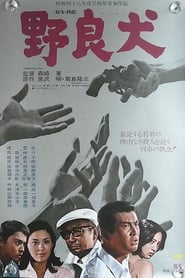 When his pistol is stolen police...
When his pistol is stolen police...Stray Dog 1973
When his pistol is stolen, police detective Murakami is humiliated, especially when the gun is later implicated in a crime. Working with his superior, Chief Detective Sato, Murakami works feverishly to trace the location of his pistol, ultimately clashing with a gang of youthful Okinawans.
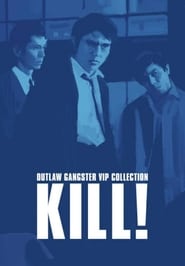 Goro has always been a lone...
Goro has always been a lone...Outlaw: Kill! 1969
Goro has always been a lone wolf. When he arrives at an industrial city in Keihin, there is certain restlessness in the air. The Iriezaki family and the Kanto Touyu-kai were in the midst of a territorial dispute. Goro was quick to notice, but had no intent to take sides. At a department store nearby, he sees an elevator lady being harassed by a couple of hoodlums. Goro decides to intervene. Unbeknownst to him, the hoodlums are Touyu-kai members – and the girl has strong ties with the opposing family.
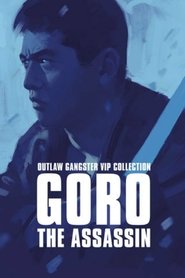 On a cold winter day Goro...
On a cold winter day Goro...Outlaw: Goro the Assassin 1968
On a cold winter day, Goro Fujikawa (Tetsuya Watari) and Masahiko murder the mob boss of Meishin-Kai. The deed costs them time in prison, but Goro had no shred of regret. When Goro is released 2 years later, Masahiko is dying in prison hospital and entrusts his last wish; "find my sister and take care of her." Goro leaves as a free man with a mission, but soon finds that he might have been better off in jail.
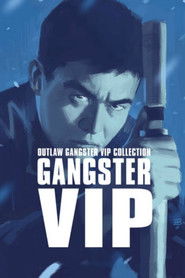 Goro had grown up in the...
Goro had grown up in the...Outlaw: Gangster VIP 1968
Goro had grown up in the yakuza world. As an active member of the Mizuhara family crime syndicate, he expressed his loyalty by always putting himself in the forefront of every battle. Violence never bothered him. However, after being sentenced to three years in prison for stabbing a rival gang’s hit man, he becomes disenchanted with the Yakuza life style. Goro is determined to start anew, but karma catches up. His two closest friends are murdered by his ex-boss. He is left with two options: to kill or be killed.
 After yakuza boss Kurata dissolves his...
After yakuza boss Kurata dissolves his...Tokyo Drifter 1966
After yakuza boss Kurata dissolves his own criminal empire, a rival kingpin offers a position to Kurata's top operative, Tetsuya "Phoenix Tetsu" Hondo. When the fiercely loyal Tetsu declines, Otsuka taps unstoppable Tatsuzo the "Viper", a ruthless gun-for-hire, to assassinate him. As the Viper trails his target through the countryside, the agile Phoenix Tetsu grows concerned that one of his former associates has betrayed him.
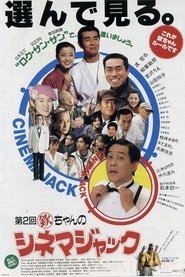 Kin chan no Cinema Jack is...
Kin chan no Cinema Jack is... A police investigator cracks down on...
A police investigator cracks down on...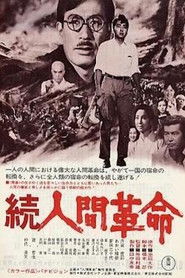 Dramatic story of one man trying...
Dramatic story of one man trying...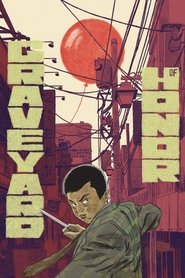 A selfdestructive man becomes a powerful...
A selfdestructive man becomes a powerful...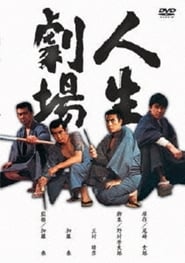 Centred on Aonari Hyokichi a young...
Centred on Aonari Hyokichi a young...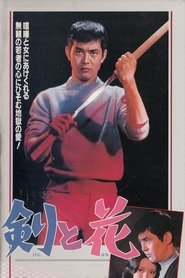 Masuda Toshio film starring Watari Tetsuya...
Masuda Toshio film starring Watari Tetsuya... Sequel to Tokyo Drifter
Sequel to Tokyo Drifter